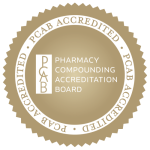About 65% of U.S. households own pets, the most common being dogs and cats, which equates to more than 80 million homes. Americans spend approximately $61 billion on their pets with a portion of this spending being prescription and over the counter (OTC) medications.
In recent years, many Americans have come to think of their pets as members of the family. Pet healthcare products and services comprise a significant and growing portion of the expenditures pet owners are willing to make.
A major factor also contributing to the growth in pet medication sales has been the introduction of new FDA approved therapeutic medication solutions available through various channels as part of these trends.
The numbers and facts showing the market trends in the veterinary space tell part of the story. They also indicate the importance of solutions as part of a holistic response to consumer demand for lower prices and more personalized care.
Changes in Veterinary Practices
Each veterinary pharmacy trend brings changes to veterinary practices. Whereas only a few decades ago, most veterinary medications were only available from a veterinarian’s office, many other venues currently exist for an owner to get the medications they need for their pets.
- Veterinary pharmacies offer a large variety of medication solutions for veterinary patients.
- Regular pharmacies that carry human drugs can dispense veterinary medications as well.
- Pet owners can buy veterinary prescriptions drugs from authorized online pharmacies.
- A growing number of specialized can satisfy the veterinary patients’ unique needs with customized medication options.
The veterinary world is complex. Veterinarians treat a large variety of species, and within each species, a large variety of breeds. Each breed can be quite different in size from one to the next. With this complexity, comes an even larger variety of individual medication needs that may greatly increase the need for compounded veterinary medications.
Accessibility to a larger number of commercially available veterinary-specific pharmaceuticals and the variety of animals requiring them correlates to a heightened interest in utilizing these treatments. But because of the need for various dosage options, and due to the fact that producing multiple different strengths may not be financially profitable for a drug company, patients and their owners may have a hard time finding the personalized treatment options they need. Compounded medications, on the other hand, can offer customized solutions for veterinary patients.
Customized Solutions
The growing demand for customized medicines caused veterinary compounding to become a major trend in veterinary compounding pharmacy solutions for these major reasons:
- Because of the variety of species that veterinarians work with, and the variety within each species, the commercially available FDA approved animal drugs do not always meet the needs of the veterinary patients.
- Besides the specific veterinary drugs approved by the FDA, in specific situations, veterinarians may prescribe human drug off-label for treating animals. Because these are not originally designed for this purpose, dosage adjustment may be necessary to obtain the appropriate veterinary specific strength and dosage form.
- There has been a dramatic increase in unavailable or back-ordered medications in recent years.
- The emergence of veterinary specialties like cardiology, oncology, and neurology at specialized animal hospitals has driven an increase in the need for compounding specialized medications.
When a veterinary patient needs a specific strength or a specific dosage form that is not commercially available, a compounded medication if often prescribed to meet the patient’s needs.
Benefits of Compounding
Compounding can benefit veterinarians in the following important ways:
- Compounding pharmacies are becoming more and more sophisticated by using modern technology in preparing customized medication, so they can better service veterinary practices.
- Compounding pharmacists obtain specialized training specific to veterinary pharmacies and are more knowledgeable regarding the specifics of veterinary patients. This enables them to serve as a great resource for veterinarians who want to offer compounded medication solutions that can improve veterinary patient compliance.
A few examples of how this can be accomplished are:
- Compounding offers various dosage forms specific to veterinary patients, such as: animal treats, specially flavored solutions, suspensions, capsules and tablets, as well as specialized delivery systems for transdermal applications. For example, a veterinarian needs to prescribe a FDA-approved antimicrobial drug for an ear infection in a dog, but the antimicrobial only comes in an injectable form. Following the FDA’s rules, the veterinarian prescribes a topical form of the antibiotic from a compounding pharmacy. Because the dosage form is altered from an injectable to a topical, this is considered compounding.
- Compounding enables the veterinarian to adjust the dosage up or down, based on the patient’s response, size, and physiological properties
- Compounding offers various flavor and palatability options, based on the individual species trend and within the species, based on the veterinary patient’s individual preference as specified by the owner. This ability to make the medications more appealing can be a tremendous help for the pet owner as it can make “pill time” into “treat time.” The value of this benefit is even bigger for pets with chronic conditions.
Many veterinarians who have come to learn about compounding and understand its benefits to their practice state that they could not provide effective medical care for many of their patients without access to compounded medications.
It is also worth noting compounding’s role in veterinary medicine because it is much more significant than it is for human medicine. The relationship between the pharmacist and the veterinarian is critical to successful patient care, and helpful in discussing medication and formulation options. It is equally important for the veterinarian to select the compounding pharmacy that best fits your practice needs.
Let Haldey Pharmaceutical Compounding be the choice for your business. The expert staff at Haldey can help you determine the best compounding solution for your veterinary practice.
Contact us today for a free evaluation!




